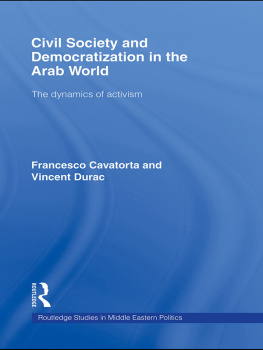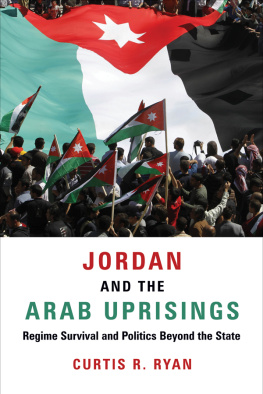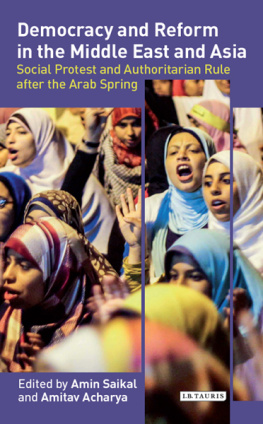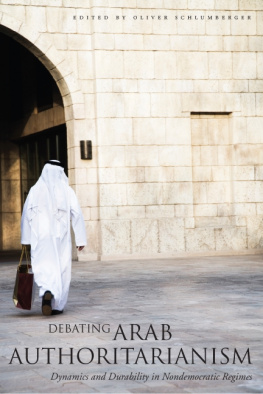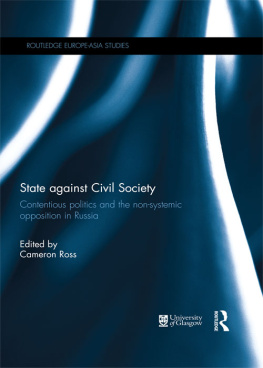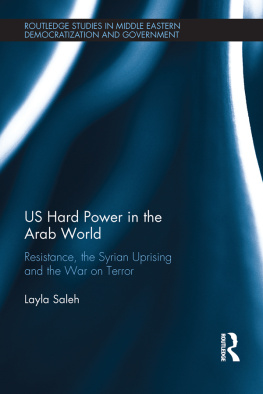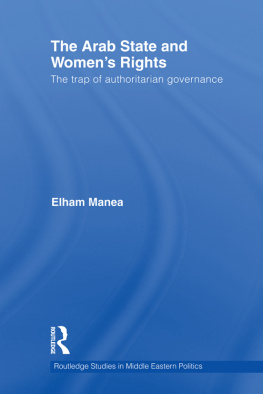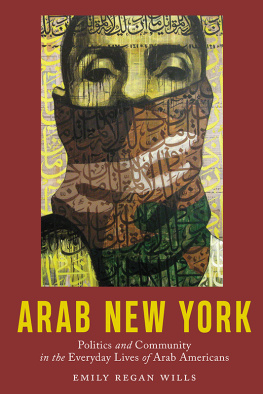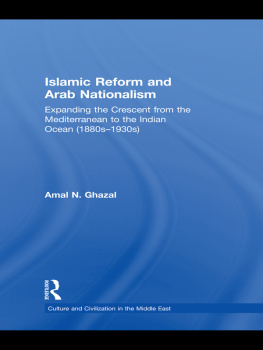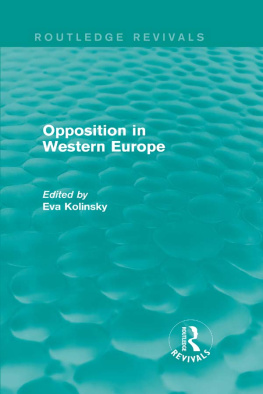The Dynamics of Opposition Cooperation in the Arab World
Within the democratisation literature, opposition unity is widely seen as an important requisite to successfully pressure authoritarian rulers into liberalising reforms and in bringing about democratic change. Taking up on this theme, this book examines the myriad ways in which opposition groups across the Arab world have sought to coalesce into broader reform coalitions at the local, national and transnational levels to challenge authoritarian incumbents and their policies. Drawing on original case studies from the region, it sheds light on the diverse nature and objectives of these reform coalitions, and explores the challenges opposition groups face in Arab states in uniting behind a common reform agenda and in driving this agenda forward. Be they electoral pacts, local government coalitions, broader opposition alliances or networks of resistance, this book demonstrates that, although widespread, the record of collective opposition activism in the Arab world is mixed, with many reform coalitions lacking the necessary cohesion and mass appeal to effectively mobilise for change.
This book was originally published as a special issue of British Journal of Middle Eastern Studies.
Dr. Hendrik Jan Kraetzschmar is Lecturer in Middle East politics at the University of Leeds. His current research focuses on the nature of electoral and party politics in the Middle East and North Africa.
The Dynamics of Opposition Cooperation in the Arab World
Contentious Politics in Times of Change
Edited by
Hendrik Jan Kraetzschmar
First published 2013 by Routledge
2 Park Square, Milton Park, Abingdon, Oxon, OX14 4RN
Simultaneously published in the USA and Canada
by Routledge
711 Third Avenue, New York, NY 10017
Routledge is an imprint of the Taylor & Francis Group, an informa business
2013 British Society for Middle Eastern Studies
This book is a reproduction of the British Journal of Middle Eastern Studies, vol. 38, issue 3. The Publisher requests to those authors who may be citing this book to state, also, the bibliographical details of the special issue on which the book was based.
All rights reserved. No part of this book may be reprinted or reproduced or utilised in any form or by any electronic, mechanical, or other means, now known or hereafter invented, including photocopying and recording, or in any information storage or retrieval system, without permission in writing from the publishers.
Trademark notice: Product or corporate names may be trademarks or registered trademarks, and are used only for identification and explanation without intent to infringe.
British Library Cataloguing in Publication Data
A catalogue record for this book is available from the British Library
ISBN13: 978-0-415-50638-0
Publishers Note
The publisher would like to make readers aware that the chapters in this book may be referred to as articles as they are identical to the articles published in the special issue. The publisher accepts responsibility for any inconsistencies that may have arisen in the course of preparing this volume for print.
The chapters in this book were originally published in the British Journal of Middle Eastern Studies, volume 38, issue 3 (December 2011). When citing this material, please use the original page numbering for each article, as follows:
Mapping Opposition Cooperation in the Arab World: From Single-Issue Coalitions to Transnational Networks
Hendrik Kraetzschmar
British Journal of Middle Eastern Studies, volume 38, issue 3, Dec 2011, pp. 287-302
Left Islamist Opposition Cooperation in Morocco
Eva Wegner and Miquel Pellicer
British Journal of Middle Eastern Studies, volume 38, issue 3, Dec 2011, pp. 303-322
Will the Real Tunisian Opposition Please Stand Up? Opposition Coordination Failures under Authoritarian Constraints
Rikke Hostrup Haugblle and Francesco Cavatorta
British Journal of Middle Eastern Studies, volume 38, issue 3, Dec 2011, pp. 323-342
The Joint Meeting Parties and the Politics of Opposition in Yemen
Vincent Durac
British Journal of Middle Eastern Studies, volume 38, issue 3, Dec 2011, pp. 343-366
Political Opposition and Reform Coalitions in Jordan
Curtis R. Ryan
British Journal of Middle Eastern Studies, volume 38, issue 3, Dec 2011, pp. 367-390
Coalitions for Dispossession and Networks of Resistance? Land, Politics and Agrarian Reform in Egypt
Ray Bush
British Journal of Middle Eastern Studies, volume 38, issue 3, Dec 2011, pp. 391-406
The Transnational and the Local: Egyptian Activists and Transnational Protest Networks
Maha Abdelrahman
British Journal of Middle Eastern Studies, volume 38, issue 3, Dec 2011, pp. 407-424
Opposition Cooperation and Uprisings in the Arab World
Ellen Lust
British Journal of Middle Eastern Studies, volume 38, issue 3, Dec 2011, pp. 425-434
Maha Abdel-Rahman is a Lecturer at the Centre of Development Studies and an affiliate of the Department of Politics and International Studies, University of Cambridge. Her research interests focus on state/civil society relations in the Middle East, social movement theory, and protest movements in Egypt. Among her publications are: Civil Society Exposed: The Politics of NGOs in Egypt (I.B. Tauris, 2004), With the Islamists? Sometimes With the State? Never! The British Journal of Middle East Studies (2009), NGOs and the Dynamics of the Egyptian Labour Market Development in Practice (2007), and The Nationalization of the Human Rights Debate in Egypt Nations and Nationalism (2007).
Ray Bush is Professor of African Studies and Development Politics at the University of Leeds. He has published widely on the political economy of economic reform, resources and rural development. His is co-chair of The Review of African Political Economy and his recent publications include Poverty and Neoliberalism, (Pluto Press, 2007) and, edited with Habib Ayeb, Marginality in Egypt and the Middle East (Zed Books, 2012).
Francesco Cavatorta is a Senior Lecturer in the School of Law and Government at Dublin City University. His research focuses on the politics of the Arab world and in particular on processes of regime change, civil society activism and political parties. He has authored or co-authored over forty articles. In addition, he authored the monograph The International Dimension of the Failed Algerian Transition (Manchester University Press, 2009) and co-authored the book Civil Society and Democratisation in the Arab World (Routledge, 2010). He is currently working on a research project dealing with the transformation of Islamism.
Vincent Durac is a lecturer in Middle East Politics in University College Dublin and a visiting lecturer at Bethlehem University in Palestine. His research interests include civil society, political reform, and the role of outside actors in the Middle East, the politics of Yemen and the transformation of Islamic political actors in the region. He has published in a number of academic journals and is co-author of Civil Society and Democratization in the Arab World: The Dynamics of Activism


